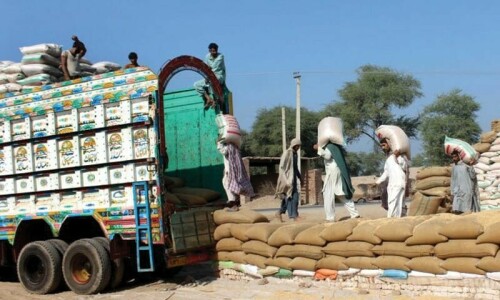Rs165bn Lahore metro train project approved

ISLAMABAD: The Central Development Working Party (CDWP) on Tuesday cleared the Lahore Orange Line Metro Train project costing Rs165.20 billion, and referred it to Ecnec for final approval.
The project envisages construction of 27.1km long dedicated signal-free corridor for train mass transit system in Lahore.
Planning and Development Minister Ahsan Iqbal, who chaired the CDWP meeting, asked the Lahore Development Authority (LDA) which will execute the
project to ensure completion of the mega project in 27 months.
The corridor will be capable of accommodating two trains running on both ways with design capacity of the system at 30,000 passengers per hour.
The orange line metro train is being financed by the Punjab from its own resources with a concessional loan from the Chinese government.
Iqbal laid emphasis on transfer of technology for building the indigenous capacity to construct such mass transit system by signing a memorandum of understanding with the Chinese company.
He said that it will be a landmark mass transit project for the poor and the middle class to commute with world class facilities at an affordable fare.
Commercial spaces should be conceived at the metro stations architecture to help overcome the big difference in the operational cost and revenue of the mass transit, he said.
The proposed alignment of the project starts from Ali Town, passing through Niaz Baig, Bund Road, Chauburji, Anarkali, Lakshmi, Railway Station, University of Engineering and Technology, Shalamar Garden, Islam Park, and terminates at Dera Gujran.
In total, the CDWP cleared seven projects worth Rs180bn, including the orange line metro project. Four projects worth Rs2.362bn were approved; three projects worth Rs177.7bn were recommended to Ecnec.
Another project recommended to Ecnec was the construction of a four-lane bridge across Indus River, linking Layyah with Taunsa worth Rs6.976bn. However, it was cleared with the financing condition of two-third from Sindh government. The Larkana development package of infrastructure projects worth Rs8.113bn was also approved subject to cost rationalisation.
The feasibility study of an energy project of Balochistan government for environmental impact assessment worth Rs209.70m was also approved by the CDWP.
Published in Dawn, May 6th, 2015
On a mobile phone? Get the Dawn Mobile App: Apple Store | Google Play












































